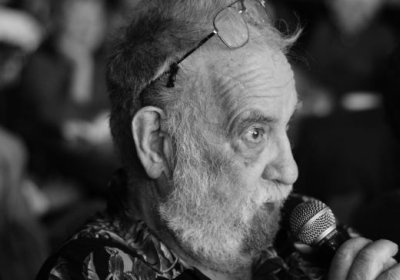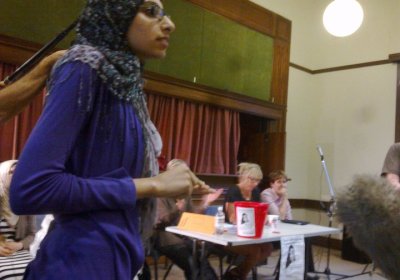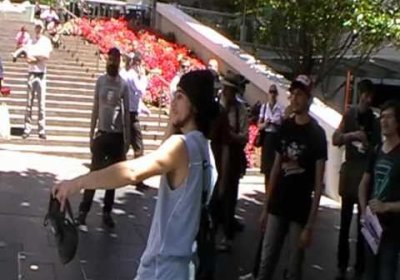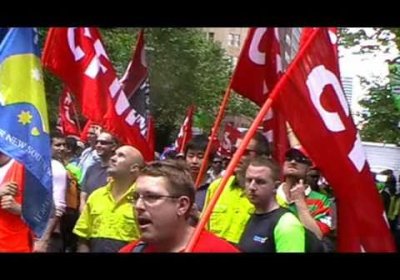About 300 members of the Egyptian community in Sydney and their supporters held a rally in Hyde Park North on January 30.
Peter Boyle
Sydney Stop The War Coalition organised "Shoe Away The War Criminals" lunchtime protest outside the US Consulate in Martin Place Sydney as US Secretary of State Hilary Clinton and US Secretary for Defense (War, actually) met with PM Julia Gillard & Foreign Minister Kevin Rudd in Melbourne on November 8, 2010.
On November 3, 2010 construction workers marched through Sydney CBD for a decent site allowance and conditions in the $6 billion-dollar Barangaroo development on Sydney's former wharves (the legendary "Hungry Mile").
Readership of the Green Left website had a 13.3% rise in October compared to September. This perhaps reflects the interesting developments in Australian politics since the failure of the big parties to win a parliamentary majority in the August 21 federal election.
- Previous page
- Page 79
- Next page











